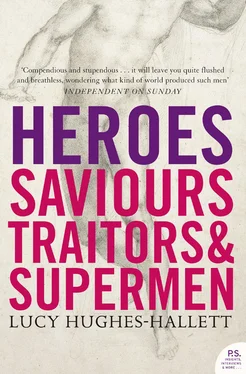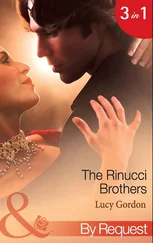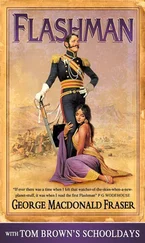According to Plutarch, he had already been a known and respected figure in his early teens. When Sulla was appointing leaders for the two teams of boys who performed the ritual mock battle, the Troy Game, one team rejected the youth appointed and clamoured for Cato. In adulthood his nature, wrote Plutarch, was ‘ inflexible, imperturbable, and altogether steadfast’. His peers were awed by it. His acknowledged incorruptibility gave him a kind of power that was independent of any formal rank. From his first entry into public life the amount of influence he was able to exert and the deference he inspired were unprecedented for one so comparatively young. His ascendancy over the Roman political scene has been described by the German historian Christian Meier as ‘ one of the strangestphenomena in the whole of history’. Inexplicable in terms of his official or social status, it can only have derived from the extraordinary force of his personality.
By the time he returned to Rome from Asia he was thirty, and therefore eligible to stand for election as one of the twenty quaestors chosen annually. The constitution of Republican Rome was a complicated hybrid, evolved over centuries. The Greek historian Polybius, who had been held hostage in Rome in the previous century, had described it as being at once monarchy, oligarchy, and democracy. His analysis is not exact – no one within the Republic had the absolute lifelong power of a monarch – but near enough. The consuls, of whom two at a time were elected for a year’s term, seemed to Polybius like kings. Originally the consuls had been military commanders and generally absent from the metropolis, but by Cato’s day it had become normal for them to remain in Rome for their year of office, departing at the end of it each to his own province (traditionally chosen by lot), which he would govern for a further year.
The consuls were the senior members of the Senate, but they were not prime ministers. The state was administered by annually elected officials – in ascending order of seniority, quaestors, aediles, praetors and consuls – each of whom held power independently of all the rest. There might be alliances between officeholders, but there was no unified government, no cabinet of ministers working in concert. Anyone who had ever held office became a lifelong member of the Senate. Theoretically, any free adult male could present himself for election to office once he attained the prescribed age. In practice, only the rich could afford to do so. Election campaigns were expensive; bribery was commonplace; and if it cost a lot of money to gain office, it cost far more to hold it. Officials were expected to provide their own staff, to lay on public games and maintain public buildings, all at their own expense. And not only were officeholders obliged to spend money copiously: they were debarred, for the rest of their lives, from earning it. It was forbidden for a senator to engage in business. Besides, to win elections it was necessary to have the right connections. Inevitably, the majority of officeholders and senators were drawn from a small pool of families, of which Cato’s was one, of substantial wealth and long-established influence.
Rome was nonetheless a democracy. The Senate was not a legislative body, its members could propose laws, but those laws were passed or rejected by the people of Rome (that is, the male, adult, unenslaved people) voting in person. And the people’s interests were protected by the tribunes of the people, elected officials (ten a year) who shared with the consuls and praetors the right to propose laws to the voters, who had the devastating power of the veto – a single tribune could block any measure – and whose persons were sacrosanct.
In Cato’s lifetime this ramshackle and mutually inconvenient assemblage of institutions began to fall apart. The upholders of the ancient constitution – of whom Cato was to become the most passionately committed – struggled to enforce the elaborate rules that were designed, above all, to ensure that no one man should ever achieve too much power. They failed. Defying the Senate, making use of the tribunes and appealing direct to the people, first Pompey, then Crassus, and finally Julius Caesar demanded and obtained powers that vastly exceeded any that the constitution allowed. It was Cato’s life’s work to oppose them.
From his first entry into public life Cato signalled his punctilious regard for the workings of the constitution. To most candidates the post of quaestor, the most junior magistracy, was primarily the portal through which a man entered the Senate – not so much a job as a rite of passage. In 65 BC Cato astonished all observers by qualifying himself for the position before applying for it. The quaestors were responsible for the administration of public funds. According to Plutarch, Cato ‘ read the lawrelating to the quaestorships, learned all the details of the office from those who had had experience in it, and formed a general idea of its power and scope’. Once elected he assumed control of the treasury, instituting a purge of the clerks who had been accepting bribes and embezzling money with impunity. Next he set about paying those, however insignificant, to whom the state was indebted, and ‘rigorously and inexorably’ demanding payment from those, however influential, who were its debtors – a policy whose simple rectitude appeared to his contemporaries breathtakingly novel.
The society in which Cato lived was described by his contemporary Sallust (who was himself convicted of extortion) as one in which ‘ instead of modesty, incorruptibility and honesty, shamelessness, bribery and rapacity held sway’. Sulla’s coup, the ensuing civil wars and his reign of terror had left the state punch-drunk and reeling. More recently and insidiously, a series of constitutional reforms and counter-reforms had undermined the perceived legitimacy of established institutions. Meanwhile wealth flooded into Rome from the conquered provinces, but there was no mechanism whereby the state could put it to good use and few channels for its redistribution among the populace. Rome had no revenue service. Romans paid no tax, but the inhabitants of the overseas provinces did. The money was collected by tax farmers, who paid dearly for the right to do the job and who set the level of tribute exacted high enough to ensure themselves handsome profits. The Roman provincial governors who oversaw their operations took their cut as well. Corruption was endemic throughout the system. The records of Rome’s law courts are full of cases of returning governors facing charges of extortion. It was a time when the best lacked all conviction: Sallust denounced those magnates who squandered their wealth shamefully on fantastically grandiose projects for beautifying their private grounds – ‘ they levelled mountainsand built upon the seas’ – instead of spending it honourably for the public’s good, and Cicero inveighed against aristocrats who chose to retire to their country estates and breed rare goldfish rather than wrestle with the intractable problems besetting the state.
In such a society Cato, scrupulously balancing his books, shone out. Heroes of a flashier sort disdain accountancy. In Alcibiades’ youth, when his guardian Pericles was accused of using public money for his own private ends, Alcibiades told him ‘ You should be seekingnot how to render, but how not to render an accounting’ and advised him to divert attention from his alleged embezzlements by provoking a major war. But Cato was a man who believed that right and wrong were absolute and non-negotiable, that ethics was a discipline as clear and exact as arithmetic. In paintings of his death it is conventional for the artist to include, along with the sword and the book, an abacus, the tool of the accountant and token of his absolute integrity.
Читать дальше












